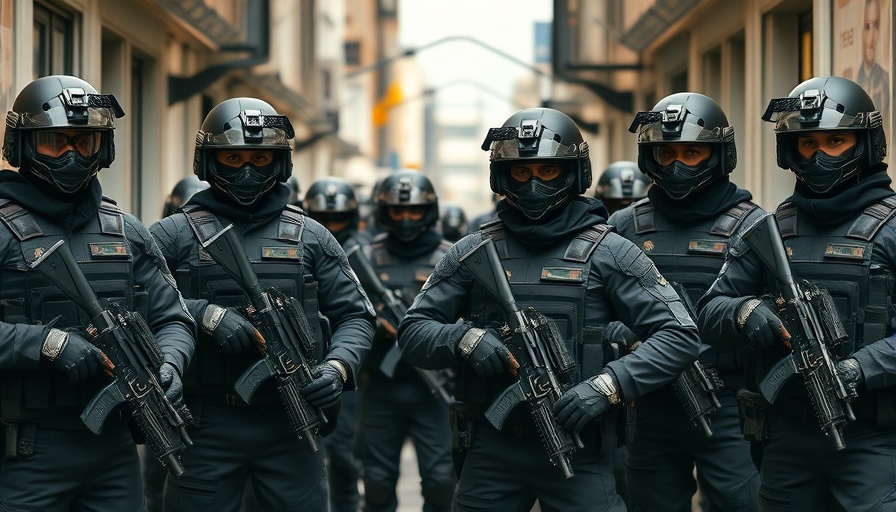
Military Courts and Civil Rights: A Controversial Return
Recently, the Ugandan Parliament passed a controversial bill reinstating military courts' authority to try civilians, a practice that had been halted following a Supreme Court ruling earlier this year. This significant reversal raises alarming questions about human rights and civil liberties in Uganda.
In 'Ugandan lawmakers bring back military courts' ability to try civilians,' the video highlights the contentious decision by Ugandan lawmakers that invites scrutiny over civil liberties and governance in the lead-up to the 2026 elections.
Historical Context of Military Trials
For the past two decades, military courts have served as a venue for addressing various legal grievances in Uganda, albeit under a cloud of criticism from human rights organizations. Critics argue that such trials often serve as instruments of oppression, particularly against political dissenters. The recent bill's passage has rekindled fears among many, particularly given the backdrop of the approaching 2026 general elections, where dissenting voices may face harsher repercussions.
The Intention Behind the Bill: A Political Tool?
Ugandan President Yoweri Museveni, in power since 1986, is suspected of reintroducing the military courts as a mechanism to stifle opposition. With the 2026 elections looming, opposition leaders warn that this legislation is a clear threat to democratic processes, effectively silencing critics and stifling free speech. This scenario is not unique to Uganda; similar tactics can be observed in various authoritarian regimes across the continent, where political stability often takes precedence over civil rights.
Reactions from Human Rights Organizations
Organizations like Amnesty International have been vocal against the reintroduction of military tribunals. They categorize it as a severe violation of human rights, arguing that such courts lack the necessary standards of fairness expected in civilian legal processes. The international community's response will be crucial as they monitor how this law will be implemented and the consequences that follow.
The Road Ahead: Risks and Predictions
Policymakers and analysts are now debating the legality and ethics of this approach. What kind of risks does this pose for Uganda's citizens, and how do these military trials hinder progress towards a more democratic state? With the eyes of the world watching, Uganda stands at a crossroads. The passage of this bill could mean a regression in civil liberties, which would set a concerning precedent for other nations in Africa.
Comparison with Other African States
Looking at the African landscape, Uganda's situation is symptomatic of broader issues that plague the continent, including governance and the rule of law. Countries like Ethiopia and Sudan have faced similar challenges, where legislative changes have been used to consolidate power rather than protect citizens' rights. Such parallels highlight the urgent need for systemic reform in governance across Africa.
Engaging the Public and Ensuring Accountability
The introduction of military courts for civilians opens a dialogue on the role of citizen engagement in governance. How can the public hold their leaders accountable, and what safeguards should be in place to prevent abuses of power? Engaging with civil society and advocacy groups is essential to ensure voices of dissent are amplified, rather than silenced.
Call to Action: Mobilizing Support for Human Rights
The passage of this controversial bill should not be the end of the conversation. It serves as a rallying point for Ugandans to demand better governance and accountability from their leaders. Professionals, activists, and concerned citizens must join forces to vocalize their opposition to any measures that threaten their democratic rights. Only a unified stance can prevent the erosion of civil liberties in Uganda.
Conclusion: The Ongoing Fight for Democracy
As we witness the re-emergence of military courts, the essential values of democracy and human rights once again hang in the balance. It is imperative for the Ugandan populace and the international community to remain vigilant against any encroachments on freedom and to advocate for a system that respects the rule of law. In doing so, Uganda can aspire towards a future where civil rights are protected rather than undermined.
 Add Row
Add Row  Add
Add 




Write A Comment